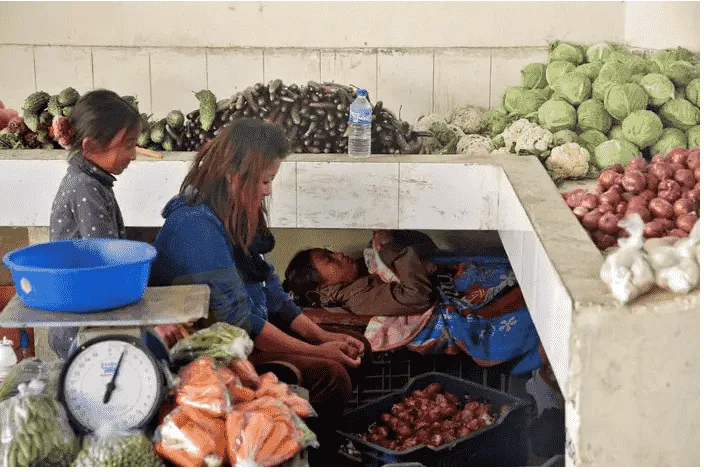简体中文
繁體中文
English
Pусский
日本語
ภาษาไทย
Tiếng Việt
Bahasa Indonesia
Español
हिन्दी
Filippiiniläinen
Français
Deutsch
Português
Türkçe
한국어
العربية
Bhutan considering steps to avoid fallout of falling forex reserves -minister
Abstract: Bhutan is considering several steps to contain adverse impacts on the economy following a fall in foreign exchange reserves, its economic affairs minister said on Thursday, after the government warned residents about possible curbs on imports.

Like many energy importing countries in South Asia, Bhutan, with a population of less than 800,000, is confronting the effects of soaring oil and grain prices due to the war in Ukraine, just as its economy is reeling from the impact of the pandemic, including a strict zero-COVID policy that has barred foreign tourists for the past two years.
“Steps are being looked into to avoid any serious fallout,” Loknath Sharma, the countrys economic affairs minister told Reuters, adding the government was closely watching the impact of dwindling foreign exchange reserves.
However, he declined, to say what steps could be taken.
Earlier this month, Bhutan increased cash bonuses paid to residents receiving remittances from overseas to 2% of each remittance from 1% previously, as part of its efforts to attract foreign currency.
Foreign exchange reserves declined to $970 million at the end of December from $1.46 billion in April 2021, data released by the Royal Monetary Authority of Bhutan earlier this month showed, while total external debt rose to $3.2 billion from $2.7 billion before the pandemic.
The government has designed a three-phase plan to deal with the emerging economic situation, the state radio Bhutans Broadcasting Service (BBS) reported on Wednesday, quoting Prime Minister Lotay Tshering.
In the first phase, the government will stop importing non-essential commodities such as snacks and biscuits. The second phase would include a ban on the import of more important goods and in the third phase, only the import of essential items will be allowed, BBS reported.
Bhutan, wedged between China and India, owes a debt of over $2.2 billion to India, its major trading partner, and about $1 billion to financial institutions including the World Bank and Asian Development Bank.
Bhutans imports rose to 90.23 billion ngultrums ($1.13 billion) in 2021 from 66.64 billion ngultrums in 2020 while exports rose at a slower pace, leaving a trade deficit of 32.23 billion ngultrums ($404 million).
Sharma said current forex reserves would cover imports for about 15 months, meeting a constitutional requirement to maintain reserves to cover at least 12 months of imports.
Local traders said rising fuel imports, amounting to nearly one-fifth of total imports, was a major worry, along with imports of passenger vehicles, while tourism earnings, crucial for the economy, have yet to pick up after two years of pandemic.
Bhutan said in June that it will reopen for international tourists from September.
($1 = 79.7570 ngultrums)

Disclaimer:
The views in this article only represent the author's personal views, and do not constitute investment advice on this platform. This platform does not guarantee the accuracy, completeness and timeliness of the information in the article, and will not be liable for any loss caused by the use of or reliance on the information in the article.
Read more

Forex Hedging: Is It a Trader’s Safety Net or Just an Illusion?
In the volatile world of forex trading, risk is inevitable. One widely used strategy is forex hedging, which is a useful technique designed not to eliminate risk entirely, but to reduce its potential impact. As global economic uncertainty persists, understanding how hedging works could be an essential addition to a trader’s toolkit.

Thinking of Investing? Read Must-Know Facts About Funding pips!
When you check the internet for Funding Pips, you'd be surprised to know it's filled with praise for Funding Pips but often lacks the real facts that traders need. Everything that seems too good to be true should always be verified first. It could be Fraud . So, we conducted research and collected several facts you must know about Funding Pips.

OctaFX Back in News: ED Attaches Assets Worth INR 134 Cr in Forex Scam Case
The Enforcement Directorate (ED) in Mumbai has attached assets worth around INR 131.45 crore. This included a luxury yacht and residential properties in Spain. Read this interesting story.

Oil Prices Stay Firm on Solid US Jobs Data
Oil prices stayed firm this week as the US labour department posted a better-than-expected payroll data in June 2025. Read this news in detail.
WikiFX Broker
Latest News
Forex Hedging: Is It a Trader’s Safety Net or Just an Illusion?
OPEC+ members agree larger-than-expected oil production hike in August
Top Wall Street analysts are pounding the table on these 3 stocks
Stock futures fall after Trump team says tariffs will go into effect on Aug. 1: Live updates
Asia-Pacific markets mixed after Trump shifts goalposts on tariffs again
FCA clarifies expectations on bullying, harassment and violence to deepen trust in financial service
Asia-Pacific markets set for mixed open after Trump shifts goalposts on tariffs again
CNBC Daily Open: Most people don't start a political party after separation
Asia-Pacific markets mostly lower after Trump shifts goalposts on tariffs again
Currency Calculator


